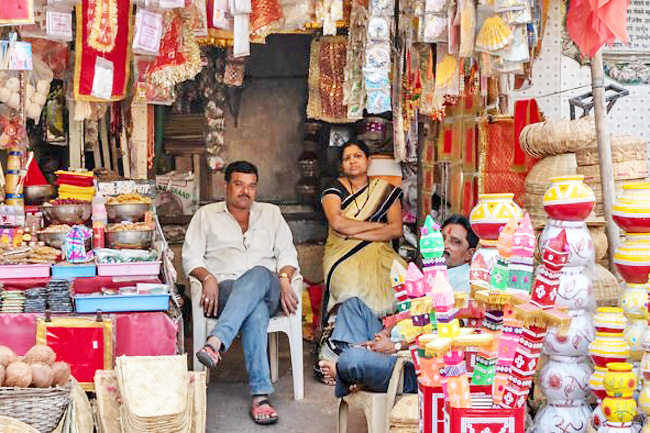THE STAR – From Unilever Plc to Colgate-Palmolive Co, consumer goods makers in India are facing distribution blues that have nothing to do with pandemic-induced shortages and bottlenecks. The trusted middlemen that brands have traditionally relied on to reach millions of small neighbourhood stores in 8,000 towns and 660,000 villages are in revolt.
It’s a mutiny that the multinationals have invited upon themselves.
About 90 per cent of what gets consumed in the continent-sized economy flows through a pipe known as “general trade”: Brands appoint third-party distributors who stock bulk inventory, despatch goods in small quantities to shops in their area, collect cash and offer retailers unsecured credit at zero interest (without the cumbersome “know-your-customer,” or KYC, checks of the formal financial system).
Distributors also take the onus of compliance with existing rules and regulations for the brands as they’re the ones dealing directly with the the last-mile outlet, known as kirana.
Each of these services is important in its own right. Together, they’re worth at least 11.5 per cent of the final price of merchandise, estimates US-trained engineer Sumit Aggarwal who returned to run his family’s consumer goods distribution business in north India. Yet, the distributors’ share of the pie is barely five per cent-to-six per cent. The rest of their value addition benefits other stakeholders, including consumers.
If the pipe is only now gurgling with discontent, it’s because a new breed of rivals has arrived.
Better-funded bulk suppliers such as Walmart Inc, billionaire Mukesh Ambani’s JioMart and Germany’s Metro AG as well as business-to-business e-commerce firms like Udaan and Big Basket are flexing their superior financial muscles to win over the small shopkeeper.

The price at which distributors get merchandise from brands allows for only 10 per cent-12 per cent margins for retailers. Apps are offering as much as 20 per cent. Since none of the new-age intermediaries are operationally profitable, the deep discounts are very likely backed by investor capital, of which there is no shortage at present.
Retailers are switching to more modern suppliers, and the traditional distribution chain is up in arms.
The Economic Times last month chronicled the story of Reckitt Benckiser Group Plc distributor Vipresh Shah in a small town 200 miles south of Mumbai. When the newspaper caught up with him, Shah, who has been selling Dettol bars to shops in his area for 14 years, hadn’t had a single order in eight days.
Storeowners are buying the same soap 15 per cent cheaper on the JioMart Partner app and accusing Shah of ripping them off.
Daring to take on the behemoths, the middlemen are sending an SOS: “Don’t turn us into a bunch of frustrated Willy Lomans from Death of a Salesman. We, too, can digitise and compete.”
Distributors in India’s Maharashtra state stopped supplying Hindustan Unilever Ltd’s Kissan range of ketchups and sauces from January 1 and threatened to expand the blockade to personal-care products and detergents. Colgate, which is facing a similar embargo on its Max Fresh line of toothpaste, has been warned by an association of traders that its products may vanish from retail outlets in Maharashtra by February.
The ban might extend to other states as well. It probably won’t come to that. Small and midsized intermediaries are scattered across the country. While they have temporarily come together in one state, they don’t have the staying power for a prolonged, nationwide strike against the far more resourceful producers.
The mobile Internet is transforming the retail landscape in India. Pure e-commerce, the kind offered by Amazon.com Inc and Walmart Inc’s Flipkart, is still a minuscule part of overall consumer spending.
But owners of mom-and-pop kirana shops are increasingly whipping out their smartphones to source goods as cheaply as they can.
Credit, which was the No 1 reason for them to rely on distributors, is now being offered by a whole range of new fintech players.


